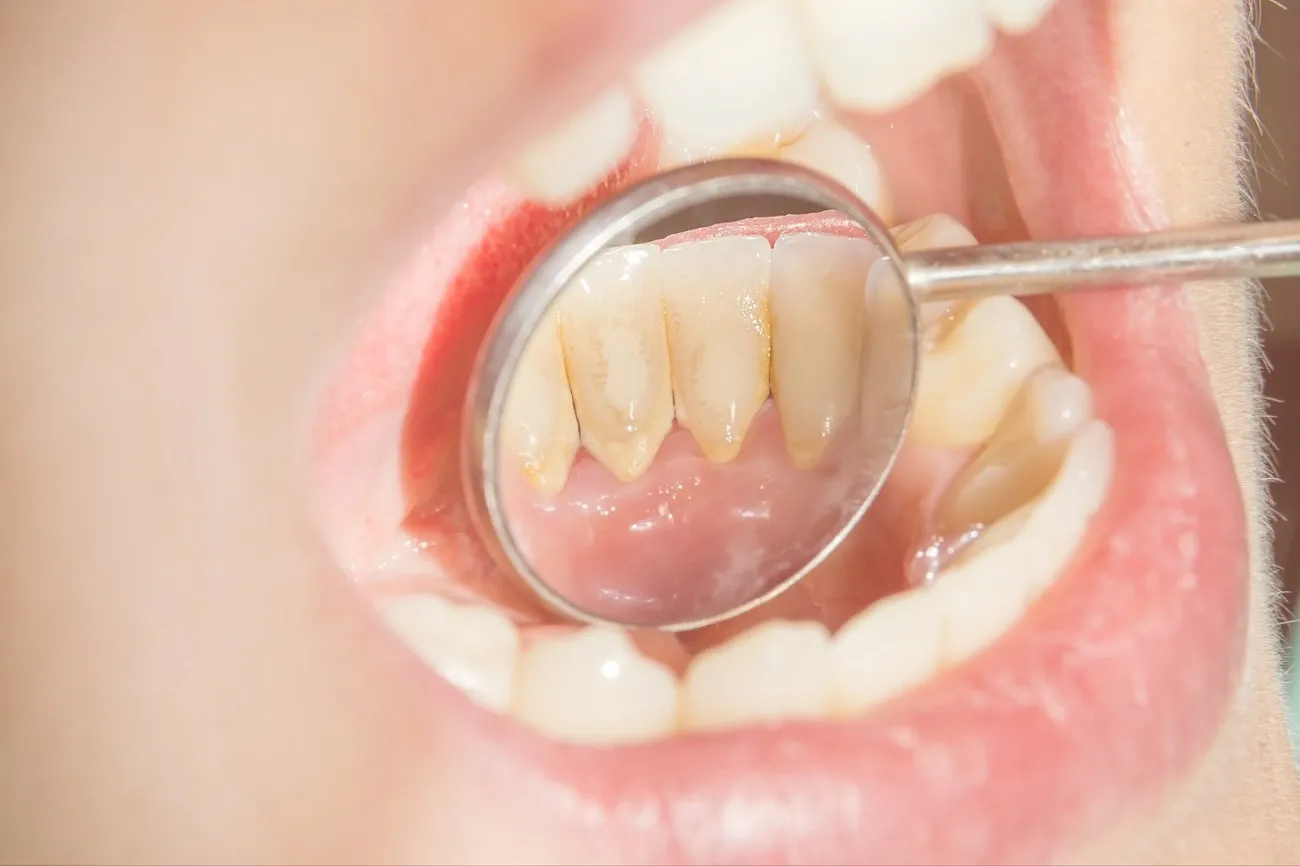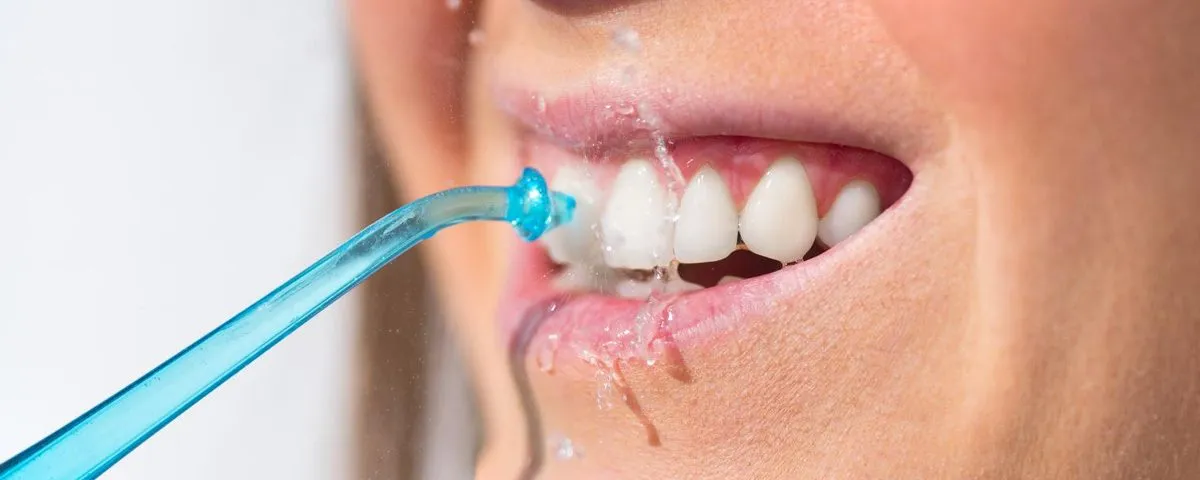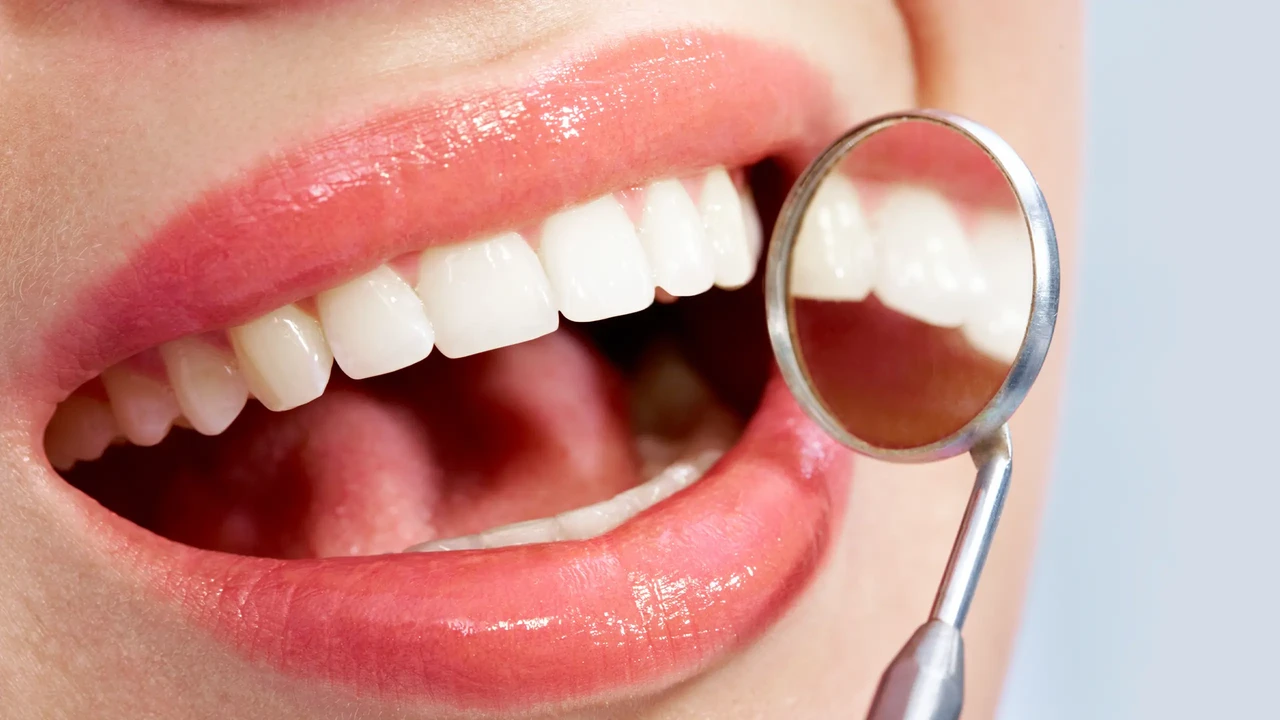What Is Dental Scaling?
If you're wondering, "What is dental scaling?" you're in the right place. Dental calculus, commonly known as tartar, consists of hardened, mineralized deposits that form on your teeth, and these accumulations can lead to serious oral health problems. In fact, tartar is one of the most significant causes of gum disease and can even lead to tooth loss if not removed regularly.
Dental scaling is the process of professionally removing plaque and tartar from your teeth using specialized instruments by a dentist. In this article, we'll answer all your questions, from tartar formation to the cleaning process, whether the procedure is painful, and what to watch out for after dental cleaning. As the best dental clinic in Antalya, we are here to guide you through this vital topic for your oral health.
What is Dental Plaque and What Causes Tartar?

Plaque, a sticky film that constantly forms in our mouths and isn't cleaned away, hardens over time to become tartar. So, what exactly is tartar and how does it accumulate? We'll answer all your questions in this section.
Dental Tartar vs. Plaque
Dental calculus and tartar refer to the same thing. Tartar is essentially calcified plaque and is commonly known as dental calculus or hardened plaque. It's a hard, crusty deposit that forms on the teeth and can cause discoloration. It can develop particularly above the gum line, on the visible surfaces of the teeth, or on the root surfaces beneath the gum.
What Causes Dental Plaque?
The primary cause of tartar formation is insufficient oral hygiene. When we don't brush our teeth regularly and don't floss, bacteria in our mouths combine with food particles to form plaque. This plaque reacts with minerals in saliva (such as calcium and phosphate) to harden and transform into tartar. This process usually begins within 24-72 hours.
Our mouths contain many different types of bacteria. When these bacteria combine with food particles, they produce acids that damage teeth and initiate plaque formation. Starchy foods like bread and pasta, as well as sugary and carbonated drinks, can accelerate tartar formation. Additionally, an individual's saliva composition and biological factors can also influence tartar buildup.
What are the Symptoms of Tartar?
The most common signs of tartar:
- Yellow, brown, or black stains on the teeth
- A rough, noticeable layer on the tooth surfaces
- Red, swollen, and sensitive gums
- Bleeding gums when brushing or flossing
- Gum recession and sensitivity
These symptoms are a clear sign of tartar accumulation, and prompt attention is essential for maintaining your oral health. Addressing tartar buildup proactively enables the preservation of strong teeth and healthy gums.
Does Tartar Cause Bad Breath?
Yes, tartar can cause bad breath (halitosis). The bacteria accumulated on the teeth break down food particles, producing compounds that cause unpleasant odors. Tartar can worsen bad breath by increasing bacterial accumulation and accelerating plaque formation. This can be socially embarrassing and indicates inadequate oral hygiene.
Therefore, regular dental check-ups and professional dental cleaning are crucial for both our dental health and our confidence.
How to Dissolve Dental Plaque?

Professional dental cleaning is a procedure performed by dentists using specialized equipment to effectively remove plaque and tartar buildup from tooth surfaces. Here are the stages of the dental cleaning process at Clinic UltraDent, equipped with ultra modern technology.
Ultrasonic Scaling
The first stage of dental scaling involves the use of ultrasonic devices (dental plaque removal tool). These devices generate high frequency vibrations to loosen and remove tartar and plaque from tooth surfaces.
Their water spray feature also cleans both the tooth surface and gums without causing damage. Ultrasonic scalers provide a more thorough cleaning than manual instruments and remove plaque and tartar without irritating the gums, offering a quicker and more comfortable cleaning process compared to traditional methods.
Manual Scaling Tool Usage
Following ultrasonic cleaning, the dentist uses manual instruments to clean tartar in unreachable areas and below the gum line. These tools are preferred for removing deposits that ultrasonic devices cannot access, such as between teeth or beneath the gum line. Manual scaling relies on the dentist's dexterity and plays a crucial role in the detailed cleaning phase.
Polishing and Fluoride Application
The final stage of dental scaling is the polishing procedure. Polishing is a smoothing process that polishes the tooth surface. Special polishing pastes and brushes are used to remove stains from the tooth surface and give teeth a shiny appearance. Polishing makes the tooth surface smoother, making it harder for bacterial plaque to accumulate again. In some cases, a fluoride application may be performed after polishing. Fluoride strengthens tooth enamel and helps prevent cavity formation.
How Long Does the Dental Scaling ProcedureTake?
Dental scaling usually takes between 30 to 60 minutes. However, the duration can vary depending on the amount and location of tartar buildup and the condition of the teeth. For individuals with heavy buildup or gum disease, the treatment time may be longer. In some cases where advanced cleaning is required, the procedure may be divided into multiple sessions.
Dental Scaling Cost Information 2025
Dental scaling costs can vary depending on the clinic's location, the dentist's experience, and the scope of the procedure. Additional procedures performed during the process (polishing, fluoride application) can also affect the price. For precise pricing, it's recommended to contact the clinic directly.
Does Dental Scaling Hurt and Is It Harmful?
One of the most frequently asked questions about dental scaling is whether the procedure is painful and if it harms the teeth. These concerns can cause many people to avoid going to the dentist. However, the reality is often different from our fears.
Is There Pain During the Procedure?
Dental scaling is generally not a painful procedure. You may feel minimal or no pain during the process. In most cases, this procedure can be performed without the need for anesthesia. You might only experience a slight tingling or pressure sensation during the procedure. When ultrasonic devices are used, a mild vibration might be felt in areas close to the gum line. Additionally, you might experience a cold sensation due to water and air sprays.
What if your gums are sensitive?
Individuals with sensitive gums might experience slight discomfort during the procedure. Anesthesia may be applied, especially in cases where tartar buildup is severe. In such instances, the individual will not feel any pain. It's normal to experience mild sensitivity in the gums after the procedure, which usually resolves on its own within a few days.
Is Dental Scaling Harmful?
Dental scaling is absolutely not harmful. On the contrary, regular dental scaling is a crucial step in maintaining oral health. There is no harm to the teeth or gums from dental scaling. Untreated tartar can damage teeth, gums, and the jawbone. If left uncleaned for a long time, it can lead to gingivitis, gum recession, and ultimately tooth loss.
Do Gaps Form After Dental Scaling?
After dental scaling, some individuals might feel a sensation of gaps between their teeth. This usually occurs for the following reasons:
- Tartar fills the spaces between teeth, and when it's removed, natural gaps become apparent.
- When gum inflammation subsides, swollen gums return to their normal level, making the gaps more prominent.
This sensation of gaps is usually temporary. After cleaning, the gums heal over time, and the spaces between the teeth return to normal.
After Dental Scaling and Frequency
After undergoing dental scaling, there are steps you should follow to maintain your oral health. The cleaning procedure is just the beginning, and there are important points to consider afterward.
What to Pay Attention to After Dental Scaling?
The first 24 hours after dental scaling are critically important. During this period, you should avoid very hot or cold food and drinks. If anesthesia was administered, you should not consume anything until the numbness wears off.
It's recommended not to eat anything for the first 2 hours after cleaning.
It's normal to experience slight gum bleeding, redness, or swelling, which usually resolves quickly. If swelling occurs, you can apply an ice pack for relief. Additionally, rinsing your mouth with salt water 4-5 times a day within the first 24 hours can reduce the risk of infection and accelerate healing.
You may experience temporary tooth sensitivity. This usually resolves on its own within a few days. You can use special toothpaste for sensitivity.
How Often Should Dental Scaling Be Done?
The frequency of dental scaling varies depending on the individual's oral health. Generally, it's recommended to have dental scaling every six months. However, for individuals with or at risk of gum disease (e.g., smokers, diabetics), cleaning every six months is still advised.
In some people, tartar formation can be faster. Those prone to plaque buildup may need more frequent dental cleanings. Therefore, your dentist will determine the exact cleaning frequency for you.
Can Tartar Reappear?
Yes, tartar can reappear after dental cleaning. For lasting oral health, dental scaling is most effective when incorporated into a routine maintenance plan. Bacterial plaque constantly forms in our mouths, and if this plaque isn't cleaned regularly, it will turn back into tartar over time.
If oral hygiene instructions are not followed after cleaning, food debris and bacterial plaque will start to accumulate again in the cleaned areas. These accumulations can quickly create a breeding ground for new tartar formation.
Recommendations to Prevent Tartar Buildup
To prevent tartar formation, you can:
- Brush your teeth at least twice a day for 3 minutes each time.
- Floss regularly.
- Consume fresh fruits and vegetables; these stimulate saliva production, which helps remove plaque-forming bacteria.
- Avoid sugary and sticky foods.
- Avoid habits like smoking.
- Use antibacterial mouthwashes.
- Go for regular dental check-ups.
Remember, by adhering to your oral hygiene habits, you can prevent tartar from recurring and keep your smile healthy for many years.
How to Remove Dental Plaque at Home?
Once formed, tartar is a hardened layer that cannot be entirely removed at home. Home remedies like baking soda, salt, or vinegar can only temporarily reduce plaque buildup; they do not eliminate tartar. On the contrary, incorrect applications can damage tooth enamel. Therefore, dental scaling must always be performed by a dentist using professional equipment. At Clinic UltraDent in Antalya, our rejuvenating dental treatments can provide you with the confident smile you've always dreamed of. We look forward to welcoming you to our clinic for detailed information and appointments.
